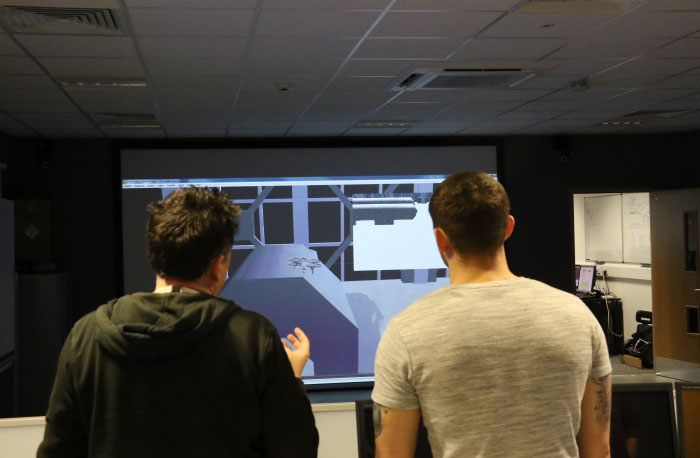ULEMCo
ULEMCo (Ultra Low Emission Mileage Company) are a Liverpool based Engineering company pursuing the future of sustainable propulsion, integrating hydrogen into both Internal Combustion and Electric vehicles, pushing the boundaries of vehicle Engineering to help combat global emissions and propel towards Net Zero.

Following an introduction to the LCR4.0 Holistic team at Liverpool John Moores University (LJMU) a consultative support process via a combination of digital diagnostics and readiness level assessment, resulted in identifying issues with certain NOx sensors on Diesel trucks when implementing their hydrogen dual-fuel system, hence a digital innovation assist project was set up to test and determine which sensors are prone to failure and why.
PARTNER SUPPORT
ULEMCo took advantage of the improvement opportunities which resulted in agreeing to support an LJMU MSc Sensor Project over summer which is tasked to investigate and resolve the NOx Sensor failures in hydrogen / diesel duel fuelled engines located at Byrom Street & ULEMCo workshops.
LCR 4.0 Holistic supported the digital innovation project by purchasing the NOx Sensors, Data Logger, Viewer Software and Gas Tester. It also provided the initial project management to link the various digital innovation resources (Skill base, Equipment & Funding) involved in the project.
RESULTS
NOx sensors consist of a ceramic element which is coated with a thin layer of electrodes and heating element. When exhaust gases flow over the ceramic element chemical reaction occurs which generates a small electrical current proportional to the concentration of NOx in the exhaust stream. The heating element in the NOx sensor is designed to maintain a constant temperature which is essential for accurate readings. Results from the MSc Sensor project identified that when the NOx sensor comes in to contact with moisture it can cause the heater element to short out leading to a loss of signal. To minimise any form of moisture ingress the following recommendations were advised namely high quality sensors to be used, correct installation, sealed electrical connections and criticality to check the exhaust system for leaks regularly.
FUTURE VISION
The support provided by LCR 4.0 Holistic has helped to identify the main cause of NOx sensor reliability is directly linked to moisture level in the exhaust gas stream. Recommendations to reduce moisture will lead to improved NOx sensor reliability, customer service levels and profitability.
ULEMCo will now put a plan in place to commercialise the recommendations via improved NOx sensor installation & design working with the key suppliers.
Click here for the full downloadable case study.
Our partnership with LCR4.0 Holistic has been a real eye-opener and has given us the means to improve our product quality and reliability. I would recommend anyone involved with automotive sensor technology to take advantage of what it has to offer.
Amanda Lyne Managing Director of ULEMCo

![LCR4 QR Image[64]](https://lcr4.s3.eu-west-1.amazonaws.com/app/uploads/2022/09/LCR4-QR-Image64-700x458.png)

